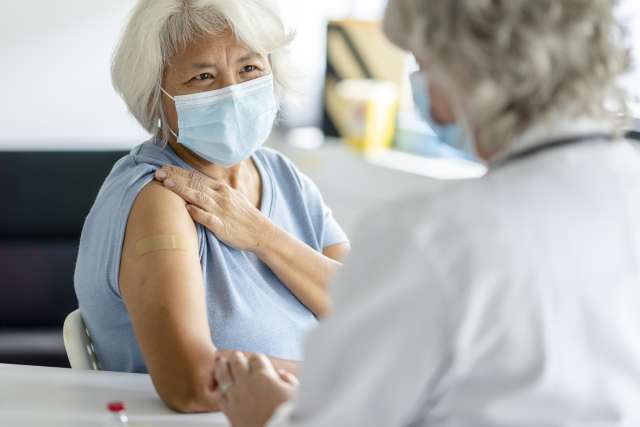Dear Doctor: It seems like a coronavirus test you can do at home would be really helpful. Then people who don’t have symptoms could know that they should quarantine, and maybe that would help stop the spread. Is there anything like that on the horizon?
Dear Reader: Not only are home coronavirus tests already a reality, the U.S. Food and Drug Administration has just issued an emergency use authorization for the first rapid coronavirus self-test that will be available without a prescription. This test, called the Ellume COVID-19 Home Test, got the nod from the FDA on Dec. 15, 2020. It joins the Lucira COVID-19 All-In-One Test Kit, a prescription-only home test, which the FDA approved last November. It is expected to become available in 2021, and will reportedly sell for about $30. Both tests utilize a nasal swab.
The over-the-counter home test has been authorized for self-use by people who are 16 years and older. Those individuals may then administer the test to people under the age of 16, including to children as young as 2 years old. The reason for the age limitations is to assure that the person is able to accurately perform the multiple steps needed to complete the test.
Although not as accurate as lab-based tests, Ellume’s test still got high marks. In a clinical study of almost 200 people, the test detected 95% of the infections found by the lab-based test. Another advantage of the new test, in addition to not requiring a prescription, is that it can be used by people who do not have symptoms of COVID-19. However, in asymptomatic cases, studies showed that the rate of accuracy dropped to 91%.
If you do take a home test and get a positive result, it’s time to self-quarantine. Mild-to-moderate symptoms of COVID-19 can be managed at home. However, if breathing becomes compromised, it’s important to seek immediate medical care.

While the increasing availability of home coronavirus tests is a big step forward in controlling the spread of the virus, it’s important to note that they are just one part of a multi-prong approach. It’s still important to wear a good mask whenever you’re outside of the home, particularly when you’re indoors. Remember that your mask not only protects others from your exhaled breath, but it also offers a degree of protection to you as well. Continue to avoid gatherings of people outside of your core group, maintain social distancing when in public, and remain vigilant about hand-washing and keeping high-touch surfaces clean.
It’s only when taken together that these precautions offer the best protection. A great metaphor that we heard recently is to think of each precaution as a slice of Swiss cheese. When you look at them one at a time, the slices of cheese have holes. But when you pile the slices up on top of each other, they act together to form a barrier. Each coronavirus precaution has its weakness, but they don’t all have the same weakness. So, by adhering to all of the precautions, you’re compensating for the various shortcomings and giving yourself the best chance at avoiding infection.
(Send your questions to [email protected], or write: Ask the Doctors, c/o UCLA Health Sciences Media Relations, 10880 Wilshire Blvd., Suite 1450, Los Angeles, CA, 90024. Owing to the volume of mail, personal replies cannot be provided.)





